When we think of gardening, we frequently consider the problem of generating lush green environments in a dry region. Coco peat has long been a popular soil supplement, valued for its capacity to retain moisture and enhance soil structure. But have you ever considered the environmental impact of coco peat?
What is Coco Peat?
Coco peat, a byproduct of coconut manufacturing, is becoming a popular and environmentally beneficial substitute for traditional growth media such as peat moss. Coco peat’s environmental advantages go beyond being a sustainable resource; it also helps to conserve water, reduce waste, and safeguard ecosystems.
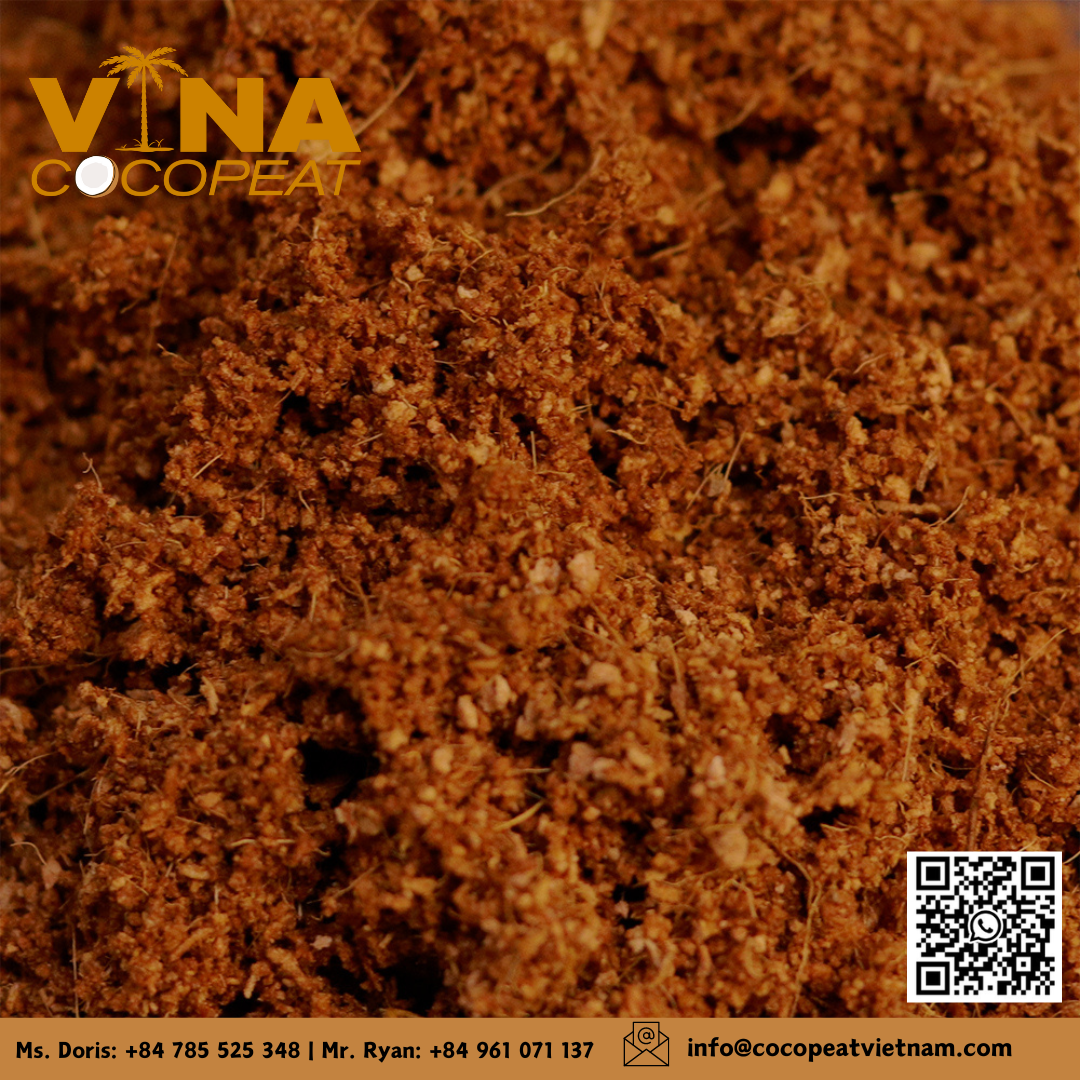
The Environmental Impact of Coco Peat
1. Sustainable Resource Utilization
*** Renewable and abundant
Coco peat is made from coconut husks, a renewable resource that is abundantly generated due to the great global demand for coconuts and coconut-based goods. Unlike scarce resources like peat moss, which takes hundreds of years to produce, coconuts are collected all year in tropical climates. This makes coco peat a perennial product.
*** Waste Reduction
Traditionally, coco peat was considered a waste byproduct of the coconut business. The use of this material to produce coco peat reduces waste and contributes to a more circular economy. Coco peat repurposes what would otherwise be discarded, transforming a potential environmental burden into a beneficial agricultural benefit.
***Low environmental disruption
Unlike peat moss extraction, which frequently requires draining peatlands and disrupting fragile ecosystems, coco peat production has a low environmental impact. Coconuts are picked without creating substantial environmental harm, and the production process consists primarily of mechanical fiber separation and natural drying, both of which require minimum energy inputs.
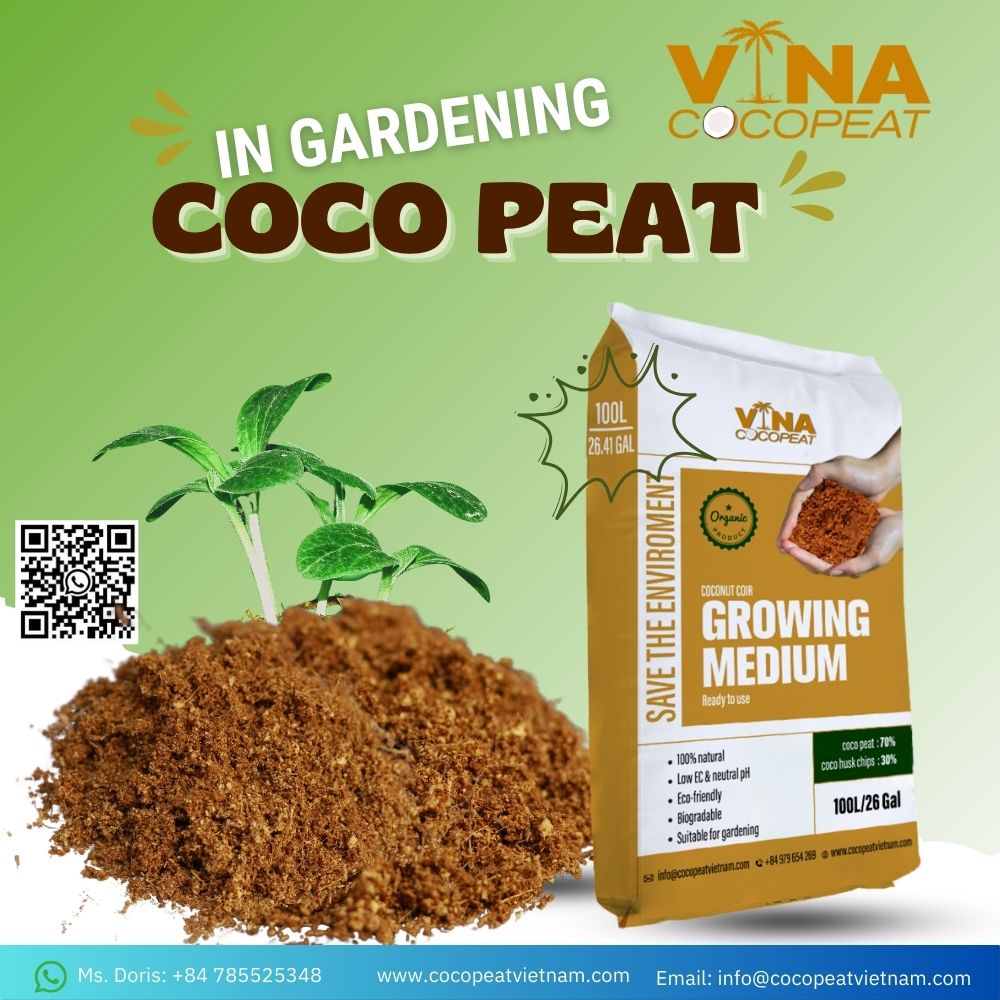
2. Water Conservation Benefits
***High Water Retention Capacity
Coco peat has an incredible ability to retain water, absorbing up to eight to nine times its own weight. This property reduces the frequency of watering required in gardening and agricultural applications, resulting in significant water savings. Coco peat can help reduce water consumption in areas with water scarcity, making it an environmentally friendly option in arid regions.
***Better Water Management
Coco peat improves water efficiency in farming systems by retaining moisture for extended periods of time. It helps to stabilize moisture levels around plant roots, lowering the risk of water stress. This, in turn, reduces the need for irrigation and conserves valuable water resources, especially in areas experiencing drought or limited water supply.
***Reduces Soil Erosion
Coco peat’s structure also helps to maintain soil integrity by preventing erosion, particularly in areas prone to water runoff. When used as mulch or mixed into soil, coco peat helps to hold soil in place, preserving topsoil and preventing nutrient loss due to erosion. This makes it especially useful in sustainable farming practices that prioritize long-term soil health.

3. Impact on Carbon Emissions
***Reduced Carbon Footprint Compared to Peat Moss
Traditional peat moss, derived from peatlands, increases greenhouse gas emissions and disrupts carbon-rich ecosystems. Coco peat, derived from coconut husks, indirectly promotes carbon sequestration and reduces reliance on peat moss, thereby reducing climate change and preserving carbon-rich ecosystems.
***Energy-Efficient Production
Coco peat production is energy-efficient, involving mechanical separation and natural drying of husks. Its lower carbon footprint and compressed shipping reduce environmental impact compared to bulkier, less-efficient alternatives.
***Reusable and compostable
Coco peat is a sustainable growing medium that can be reused multiple times, reducing the need for new materials and carbon emissions. It’s biodegradable and compostable, adding valuable organic matter without harmful emissions.
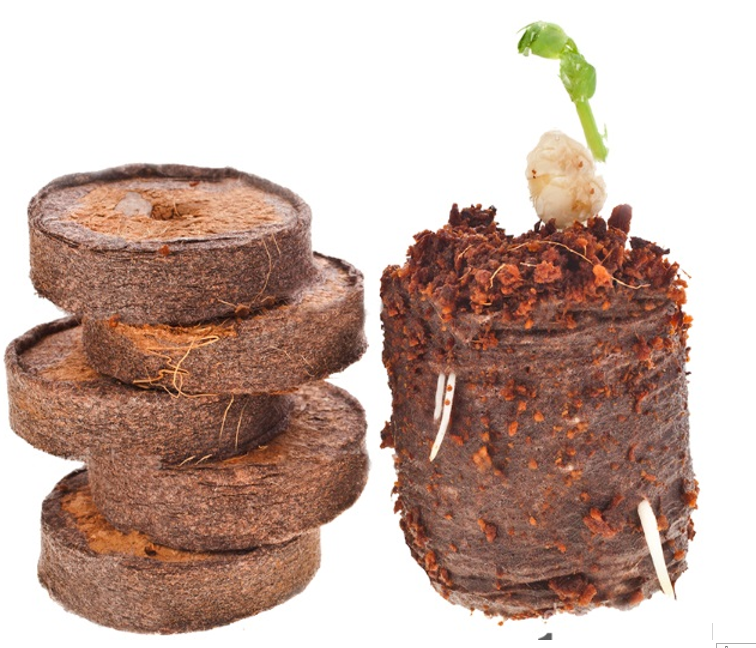
4. Soil Health and Nutrient Management
***Improved Soil Structure
Coco peat improves soil structure, promoting aeration, moisture retention, and plant root growth, thereby enhancing crop yields in agricultural systems.
***Encourages Microbial Activity
Coco peat creates a favorable environment for soil microbes, which play an important role in nutrient cycling. Coco peat promotes healthy microbial communities, which improves soil fertility and long-term soil sustainability. This organic interaction stands in contrast to chemical fertilizers, which frequently harm soil ecosystems and cause long-term soil degradation.
***Supports Nutrient Efficiency
Coco peat retains nutrients while allowing excess salts to drain, preventing nutrient buildup, which can be harmful to plants. This balance simplifies soil fertility management and increases the efficiency of applied fertilizers, reducing the need for chemical inputs. As a result, agriculture’s environmental impact, such as fertilizer runoff into water bodies, is reduced.
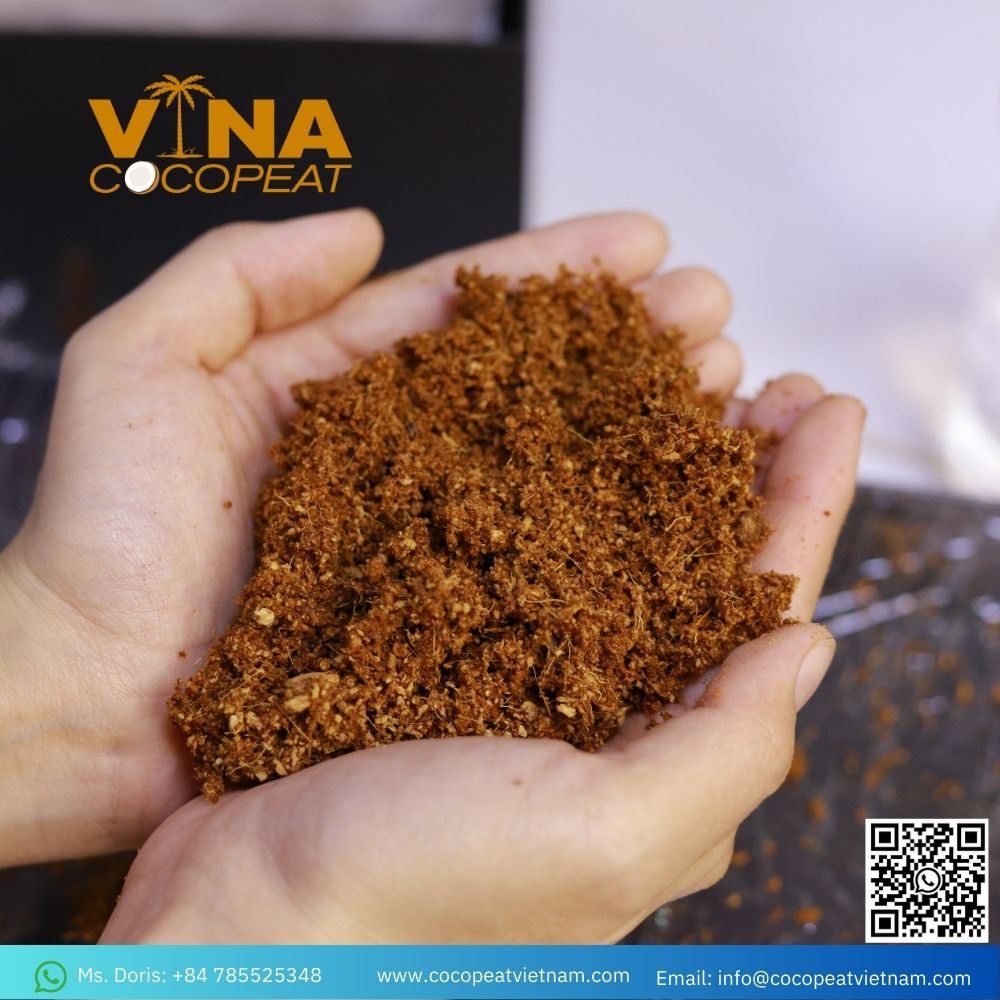
5. Biodegradability and Eco-Friendly Disposal
***Natural Decomposition
Coco peat is completely biodegradable, meaning it degrades naturally over time without leaving toxic residues. Unlike synthetic growing mediums such as plastic-based substrates, coco peat does not add to the growing problem of plastic pollution. Instead, it decomposes and adds organic matter to the soil, thereby improving soil health.
***Compostable and Recyclable
Coco peat, once used as a growing medium, can be easily composted. This allows it to be reused as a soil amendment, returning valuable nutrients to the earth and helping to create a closed-loop agricultural system. Its ability to be recycled and composted improves its sustainability profile, reducing the environmental impact of waste disposal.
6. Broader Ecological and Environmental Impacts
***Less Chemical Usage
Coco peat is naturally resistant to some pests and diseases, reducing the need for chemical pesticides and fungicides. This reduced reliance on chemicals is good for the environment because it reduces contamination in soil and water. Furthermore, using fewer chemicals in the farming process results in a healthier ecosystem for surrounding wildlife and better human health outcomes.
***Supporting Sustainable Agriculture
The environmental benefits of coco peat are consistent with the principles of sustainable agriculture. Coco peat helps farmers reduce their environmental footprint by improving water retention, promoting soil health, reducing chemical use, and providing a renewable resource. Its application in organic farming and hydroponic systems emphasizes its importance in promoting environmentally friendly, productive farming practices.
The environmental impact of coco peat is significant, especially in a world where sustainability is becoming increasingly important. By choosing sustainable alternatives, like making the coconut’s product, you can enjoy a thriving garden while contributing to the preservation of our planet’s precious ecosystems.
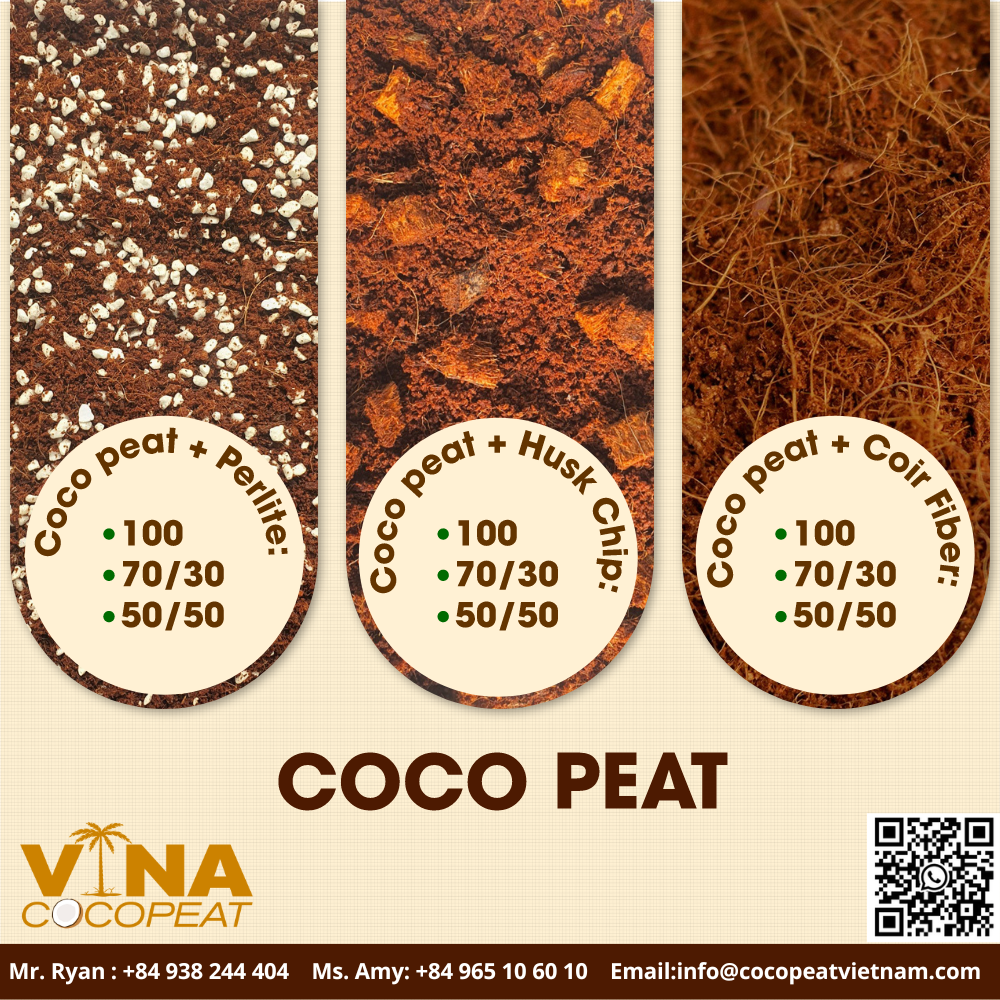
At VINA COCO PEAT, we provide a wide range of coco coir-derived composting materials, including peat bricks, chips, and substrate mixes, etc.
Feel free to contact with our desicated sales team. We are online 24/7 to server customer.
Ms. Doris: +84 785 525 348 (ZALO, WHATSAPP, WECHAT, LINE)
Mr. Ryan: +84 961 071 137 (ZALO, WHATSAPP, WECHAT)
한국 영업 담당자: +84 969 273 598 (Ms. Lan)
中文: +84 397 317 401 (Ms. Vi)
Email: info@cocopeatvietnam.com – www.cocopeatvietnam.com
